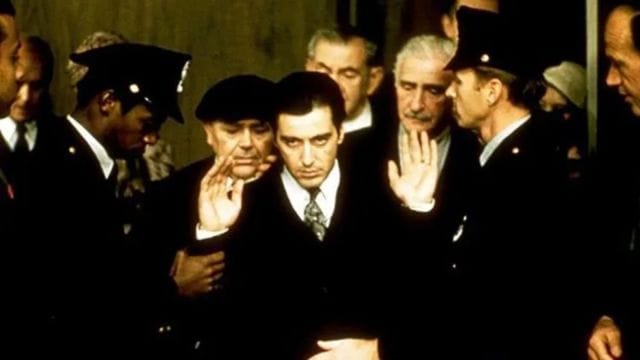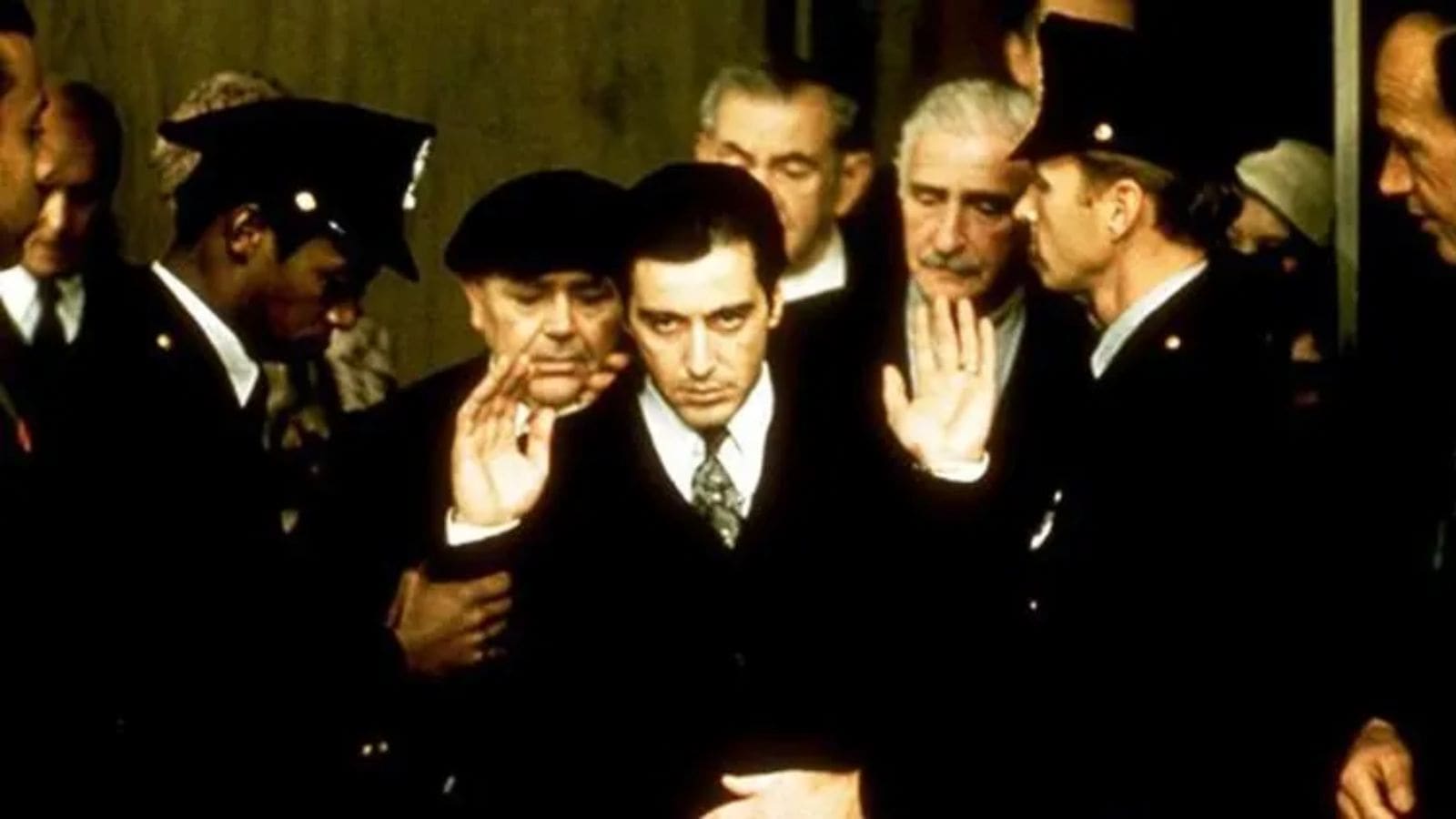
Dec 18, 2024 15:48 IST First published on: Dec 18, 2024 at 15:38 IST
Written by Shivendra Singh
A few weeks before Indira Gandhi declared the infamous Emergency, Francis Ford Coppola’s The Godfather Part II premiered in the United States. Much like how India lost its innocence with the unfolding of an era of authoritarianism, political dynasties, plots and intrigue, assassinations, and lust for power, the Corleone clan, too, progressed from being just a New York-centric crime syndicate to a mafia powerhouse whose influence and operations now ran from Miami in the east to Las Vegas in the west. It was also the age of Richard Nixon and his Watergate scandal, of Bob Woodward and Deepthroat, and, in India, the epoch of the Angry Young Man. Between Al Pacino and Amitabh Bachchan, between guns that settled feuds and gods that started them, and between the Corleones and the Gandhis, there hangs a searing tale of familial bonds, loyalty, quest for power and the corruption that ensues from it.
At a cursory glance, it comes across as a well-made gangster flick. At its heart, it is much more than that. “I’ve always felt The Godfather was really less about gangsters, than about power and powerful families, and the succession of power, and the Machiavellian way that real power works in the world,” Coppola told the BBC’s Barry Norman in 1991. Artistes can often be wrong about their works. But in this instance Coppola got it straight. Like Hitchcock’s MacGuffin, Rosebud in Citizen Kane, or Hemingway’s Iceberg, the crime and violence in the movie, and all the “gangster stuff ”, are symbolic and incidental. They are merely hooks. At a deeper level, the movie defies its genre, encompassing a few eternally classic themes, such as, a powerful father and ties of blood, a son yearning to escape his fate, old-world values clashing with a changing society, honour and betrayal, and how power corrupts the souls of those who wield it.
When the first instalment of the trilogy hit the big screens in 1972, it revolutionised the manner in which gangster movies were made. Prior to that, simplistic portrayals of gangsters showed “bad” guys on a random killing-spree. For the first time, the world watched a film that added psychological depth to the workings of the mafia, interweaving it with what happens inside a family, between fathers and sons, brothers and sisters, cousins and friends, and between romantic interests. It showed that most crimes and politically incorrect behaviours can themselves be reactions to injustices inflicted on the perpetrators at various levels and to a profound lack of love in them. That no one is a born bigot or a criminal; one becomes.
To many, especially to those dripping in political correctness and cancel culture, this may seem provocative, even an act of condoning. But to those who are interested in looking at crime and power tussles and finding the root of it as the first step towards understanding it and, thus, resolving it, The Godfather — both the novel and the film trilogy — is a shining example of comprehending the law of cause and effect and its sometimes vicious circles.
One of the other reasons for The Godfather’s influence and success is that the author on whose novel the trilogy was based — Mario Puzo — was himself deeply involved in the making of these films. He was the screenwriter on all the three instalments and worked closely with Coppola in developing the story for the screen. And he, too, didn’t see The Godfather as a novel about crime and the mafia. As Nilanjana Roy wrote in her Business Standard column in 2009, “[Puzo] saw it as a book about the family: Business is just business, something you shouldn’t take personally, but betrayal of family ties, loyalty to the family, the upholding of family values — these are the strongest and most insistent themes of [the book].”
most read
In India, too, The Godfather is beloved and has found an ever-growing audience across generations “in part,” as Roy puts it, “because it is the saga of the classic large, warm and utterly dysfunctional family. Small wonder that Puzo has so many fans in India, where the Corleones, with a few tiny shifts, could so easily be the Capoors” or, if I may add, the Gandhis, or even the larger RSS-BJP Sangh Parivar whose members may not share ties of blood but that of caste and ideals that aim to subsume society and organise it in a manner that best preserves and fosters their power and influence.
With the rise of self-styled strongmen across the world, from Donald Trump, Vladimir Putin and Jair Bolsonaro to Recep Tayyip Erdogan, Xi Jinping and Narendra Modi, and with more and more power being concentrated in just a handful of families, be it in politics, business or the film industry, pieces of art like The Godfather, even after decades of their conception, offer an epic glimpse into the motivations behind the cults that dim the lights of democracy everywhere and the failure of the so-called progressive Left-Liberals and their politics that often pave the way for such cults to takeover…totally.
Singh is a writer from Lucknow
Why should you buy our Subscription?
You want to be the smartest in the room.
You want access to our award-winning journalism.
You don’t want to be misled and misinformed.
Choose your subscription package


